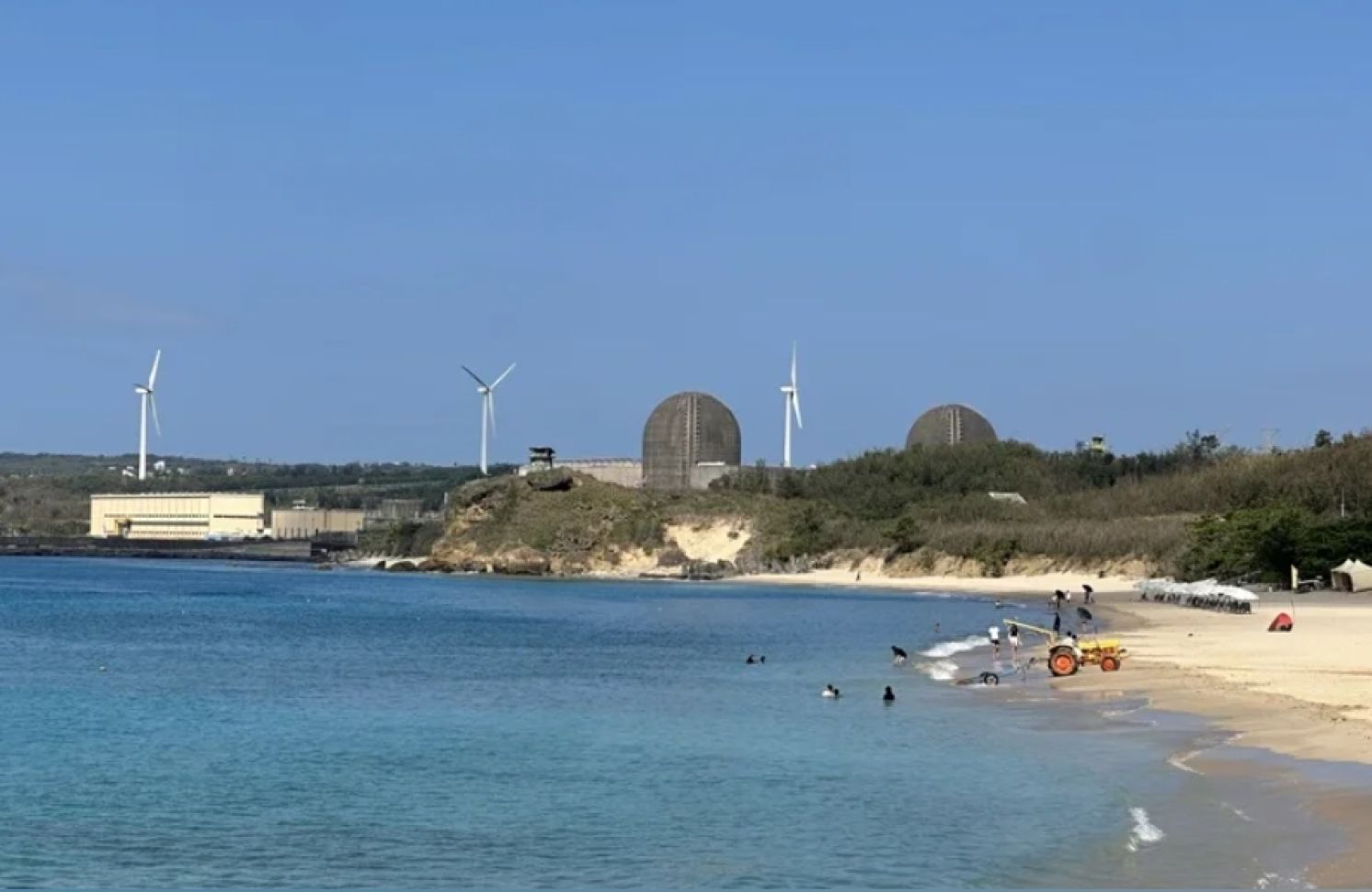
With 92% Thermal Power, Nuclear-Free Policy Has Turned Taiwan into Pollution-Plagued Island
By Chen Ching-yun, United Daily News, May 23, 2025
Following the decommissioning of the No. 2 reactor at the Third Nuclear Power Plant, the country has formally entered a new era of the “nuclear-free homeland” policy. While politically symbolic, this shift has also exposed deep concerns about Taiwan’s energy reality: increased pressure on fossil fuel plants, worsening air pollution, rising electricity prices, and heightened risks for industrial electricity usage. The nation’s energy transition now faces a severe challenge.
According to central dispatch data, on the day of the plant's decommissioning, coal, gas, and oil accounted for 92 percent of electricity generation. That same week, reports emerged of the Hsinta Power Plant activating backup units at night and Taichung Power Plant running at full capacity—directly contradicting the government’s promises of green energy and carbon reduction. Critics accuse the government of promoting green energy by day while relying on coal by night, rendering its environmental promises little more than slogans.
The Legislative Yuan recently passed a resolution calling for a “coal-free Taichung Power Plant by 2028,” demanding annual reductions in coal usage to cut pollution and meet carbon goals. However, the executive branch responded passively, and the ruling party showed no sincere intent to negotiate, leading to a breakdown in bipartisan talks. This reflects a lack of foresight and consensus in Taiwan’s energy policy—failing to rise above partisan interests or meet citizens' basic expectations for clean air and reliable electricity.
Taiwan aims to become an “AI-powered tech island,” yet it lacks one of the essentials: a stable power supply. Power outages already impact daily life, and industrial electricity is a ticking time bomb. Without a reliable baseload power source, ambitions for net-zero transformation and technological innovation may remain empty rhetoric.
Meanwhile, structural corruption in the green energy sector is becoming increasingly evident under government protection. In a major corruption case in Tainan, 15 individuals—including former city officials and solar industry executives—were indicted for fraud involving NT$9.1 billion (about US$303 million). Tactics included fake land leases, false agricultural projects, and forged documents, all to profit from land-use changes illegally. Oversight was clearly lacking. Similar subsidy abuse and land-grabbing scandals have emerged in Miaoli and Yunlin counties. Some companies are also suspected of inflating performance metrics and funneling money overseas, prompting joint investigations by the Financial Supervisory Commission and the Agency Against Corruption, Ministry of Justice.
Globally, energy policies are shifting dramatically. Germany is partnering with France to develop small modular reactors (SMRs) and fusion technology in the wake of reassessing energy security and climate goals. Japan and South Korea also expanded their advanced nuclear capabilities to balance carbon reduction and energy reliability. Around the world, nations are moving past the binary thinking of “nuclear-free equals progress,” opting instead for pragmatic, scientific, and diversified energy strategies.
In stark contrast, Taiwan remains trapped in ideological constraints, treating the “nuclear-free homeland” as untouchable dogma. With no concrete alternatives, it relies increasingly on thermal power, resulting in dirtier air and higher electricity costs. What was meant to be a policy for sustainability and justice is becoming a hotbed of government-business collusion and profiteering—deeply disheartening.
Energy policy should not be a tool for partisan battles. It must be treated as a national survival strategy. Without a clear coal-reduction roadmap and a viable mechanism to reassess nuclear energy, reliance on thermal power will only grow, alongside pollution and public distrust. If green energy expansion continues without transparency and oversight, public skepticism about the energy transition will deepen.
The breakdown of Legislative Yuan negotiations and the stealthy nighttime operation of fossil plants are not isolated incidents. They signal cracks in Taiwan’s energy governance system. Only by confronting energy realities honestly, scientifically evaluating all power sources and their cost-effectiveness, and restarting rational discussions on nuclear energy and advanced reactors, can Taiwan end this imbalanced and overhyped energy crisis. It’s the only path forward—out of the shadows of this “burning island” and toward an energy future that is affordable, reliable, and genuinely sustainable.
From: https://udn.com/news/story/7339/8758688?
〈Back to Taiwan Weekly Newsletter〉